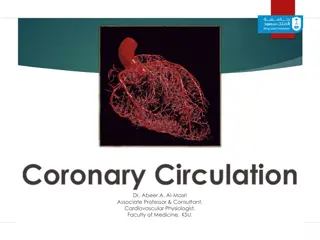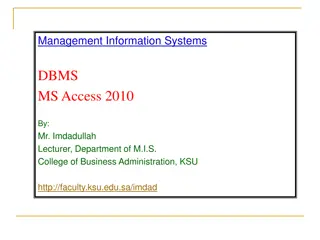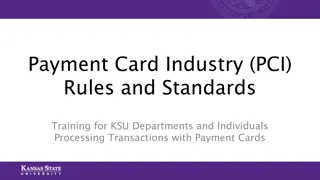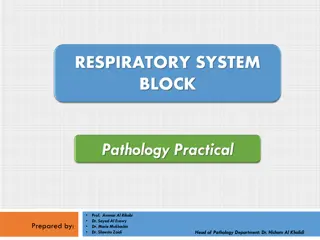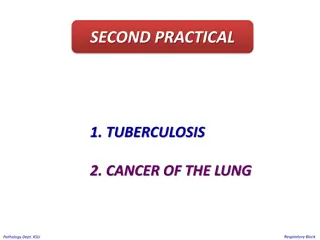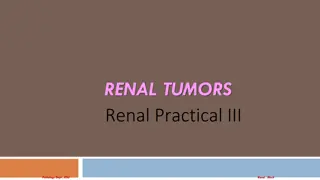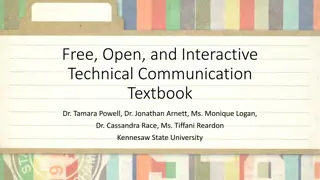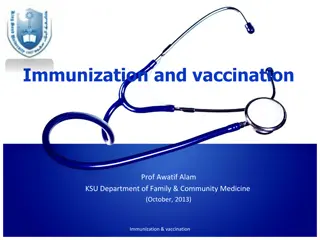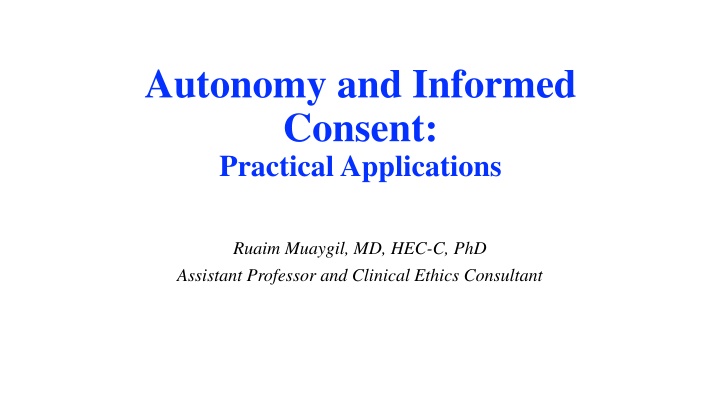
Practical Applications of Autonomy and Informed Consent in Medical Ethics
Explore ethical case studies involving autonomy and informed consent in healthcare, including situations related to surgical decisions, patient communication, and disclosure of medical information. Learn about the essential components of informed consent and how to navigate complex ethical dilemmas in medical practice.
Download Presentation

Please find below an Image/Link to download the presentation.
The content on the website is provided AS IS for your information and personal use only. It may not be sold, licensed, or shared on other websites without obtaining consent from the author. If you encounter any issues during the download, it is possible that the publisher has removed the file from their server.
You are allowed to download the files provided on this website for personal or commercial use, subject to the condition that they are used lawfully. All files are the property of their respective owners.
The content on the website is provided AS IS for your information and personal use only. It may not be sold, licensed, or shared on other websites without obtaining consent from the author.
E N D
Presentation Transcript
Autonomy and Informed Consent: Practical Applications Ruaim Muaygil, MD, HEC-C, PhD Assistant Professor and Clinical Ethics Consultant
Study Guide Understand the cases and appreciate the ethically relevant factors in each one.
Nour is a 37 year old mother of three with a history of severe abdominal pain and bleeding. She has been diagnosed with uterine fibroids, and her surgeon recommends surgical removal. After much deliberation, Nour agrees to the surgery and signs the consent form. During the operation, Nour s surgeon realizes that several of the fibroids are deeply embedded into the uterine wall and determines that a hysterectomy is warranted. He proceeds to perform the hysterectomy even though he did not discuss the possibility with Nour because he believes that it is the right course of action.
Group the relevant factors. Weigh and balance. Arrive at your recommendations. Doctor s actions were ethically justified Avoided exposing the patient to the repeated burdens of surgery and GA Paternalistic decision making. Doctor s actions were not ethically justified Violated patient autonomy by not allowing her to make a choice. Incomplete informed consent.
Informed Consent/ Informed Refusal Three Essential Components 1. Disclosure: Discussion of pertinent information. Diagnosis and Prognosis Treatment options, including no treatment Benefits/risks/likely consequences. 2. Voluntariness: Freedom from coercion and undue influence. 3. Comprehension: Does the patient have decision making capacity?
A 65 year old woman is diagnosed with a progressive terminal illness. Her two sons request that the diagnosis is kept from her. They believe that finding out will destroy their mother.
Disclosure Truth-telling There is an ethical obligation to disclose all pertinent medical information to a competent adult patient with decision making capacity. Maintaining a working and trusting relationship with the family is also vital. Recommendation: Acknowledge the sons concerns. Explain your ethical and professional duty (e.g. adequate informed consent.) Explain why disclosure is important (e.g. treatment complications.) Decide on a plan: Ask the patient what she wants to know, how much she wants to be involved, and who she prefers to make decisions on her behalf.
A 30 year old women presents with papilledema and headache. She is accompanied by her husband. The neurologist wants to perform an LP to evaluate for an infectious process. The patient is awake, alert, and able to consent. After the neurologist explains the procedure and its indications, the husband declines to give his consent. He recalls that a relative of his was paralyzed after undergoing a similar procedure. The patient doesn t say anything, but agrees with her husband when asked.
Voluntary There is an ethical duty to ensure that consent / refusal is given freely without coercion or undue pressure. Sometimes pressure is well intentioned. Could be social, familial, financial, etc. Recommendation: Speak to the patient privately. Ascertain her concerns. Ensure her decision is fully informed (benefits, risks, etc.)
A 75-year-old man with type 2 diabetes mellitus and peripheral vascular disease is admitted with a gangrenous foot ulcer. A surgical consultation results in a recommendation for a below-the-knee amputation, but the patient declines the procedure on the grounds that he has lived long enough and wants to die with his body intact. His family is concerned that he has been increasingly confused over the past year and now appears to be depressed.
Comprehension Decision Making Capacity Decision making capacity is a medical term referring to ability of a patient to make medical decisions for themselves: Ability to understand relevant information. Appreciate medical situation and possible consequences of accepting or declining treatments. Communicate a choice. Engage in rational deliberation about one s own values in relation to the physician s recommendations about treatment options. Capacity is always presumed unless proven otherwise, regardless of age or cognitive disability.
There is an ethical obligation to: Respect the patient s wishes. Ensure the patient s refusal is fully informed (relevant info, DMC, voluntary.) Recommendation: Explore his DMC. Consult psychiatry if you suspect a mental health issue affecting DMC. Understand his reasons, motivations for refusal. Ensure the patient understands his post op options.
Decision-Making Standards in the absence of DMC 1- Known wishes: Written or verbal declaration. 2- Substituted Judgment: Surrogate decision maker makes decisions based on inferred wishes of the patient based on the patient s previous actions, statements, and values. What the patient would want. 3- Best Interest Standard: The surrogate s decision must be based on the best interests of the patient.
A 45 year old man with advanced ALS is admitted with respiratory failure. It is likely he will require long-term artificial ventilation to survive. The patient is currently intubated and incapacitated in the ICU. His wife and adult son insist that all interventions are provided to the patient, but the neurologist who has treated the patient since his diagnosis is more hesitant. He recalls several in depth conversations with the patient where he stated he did not want to be kept alive via machines.
There is an ethical duty to uphold the patients known wishes. Recommendation: Acknowledge the family s distress. Share the patient s previously stated wishes. Answer questions: explain his reasons, his medical prognosis. Give them time. Assure them that all other care will continue. Retrospective: Encourage patients to share their end of life goals of care with their families. Encourage patients to appoint a surrogate decision maker who is aware of their preferences.
A 45-year-old foreign laborer is brought to the hospital after falling from a building where he was working in construction. He is unconscious and incapacitated. He has no family in Riyadh and no close friends who can communicate his preferences or values to the care team.
DM for Unrepresented Patients who lack DMC. Recommendation: Make every effort to identify a surrogate decision maker. In cases of emergency or lifesaving measures the patient s consent is not required, and treatment is provided on the basis of presumed consent. Follow the best interest standard for decision making. Follow principle of proportionality (benefit>burden.) Consult: law, institutional policy, and ethics services.
A 70 year old man with multiple medical problems including a recent stroke is admitted to the hospital with pneumonia. He is at present confused and disoriented, but his physician anticipates the patient will recover his mental capacities once the infection is treated. The patient s children however insist that their father is declared incompetent.
Appropriate Surrogate Decision Makers 1. Invested in the patient s best interest. 2. Willing and able to take on the responsibility of surrogate decision making. 3. Available to the patient s medical team 4. Able to understand the patient s medical condition, treatment options, projected outcome, and willing to make a decision. Recommendation: The physician should not sign the declaration if she believes the impairment to be temporary. What if the physician suspects ulterior motives (financial gains)?
Exceptions to Informed Consent/ Informed Refusal 1. Patient lacks decision making capacity. 2. Emergencies. Implied consent and reasonable persons. 3. Therapeutic privilege. When knowledge may cause serious and immediate harm to the patient. Must be sharply circumscribed. 4. Waiver Patients waive right to be involved. Must be informed.
A 31 year old is diagnosed with Idiopathic Intracranial hypertension. If untreated, it may lead to visual loss. She declines intervention. A 21 year old is diagnosed with meningitis. Although drowsy, he clearly states he does not wish to be treated and wants to be discharged immediately.
Recommendation Determine capacity if there is reason to suspect impairment. Ensure disclosure of all information, including consequences of non- treatment. Determine affect of illness, if any. Balance benefits and harm. Consider harm to others.
Decision-Making A shared process Patient Care Provider(s) Collaborative. Patient- values/ preferences. Care provider- expertise
Pediatric Decision-Making Patient Must balance: Parental authority. Care provider duty. Role of the child. Shared Decision- Making Care provider(s) Parents
A 3 year old child is diagnosed with an aggressive malignancy. Doctors estimate a 40% chance of cure with chemotherapy. Without it, the illness would be fatal in about 8 months. The child s parents decline treatment and decide to take him to a religious healer instead.
Parental Authority 1. Children do not have decision-making capacity. 2. Parents know their children s unique needs (invested in their future, care.) 3. Children aren t legally responsible (parents responsible for child.) 4. Some decisions require familial sacrifices (parents make decisions with everyone s interests in mind.) 5. Parental autonomy: Parents have a right to parent their children and make decisions for them. Friedman Ross, L. Healthcare Decision making by children, is it in their best interest? The Hastings Center Report, 1997.
Care Provider Duty Beneficence and non-maleficence: Care provider must act in such a way to maximize benefit to patients and to minimize risk. There is a duty of care, to protect child s well-being.
A 17 year old girl is diagnosed with an Osteosarcoma. Chances of survival are excellent with an above the knee amputation and chemotherapy. The patient is an athlete. She declines amputation but consents to chemotherapy. Both patient and parents are aware of the significantly reduced survival outcomes without amputation, but parents are reluctant to force their daughter to undergo life-altering surgery.
Role of the child Parents are the ultimate decision makers. Children are capable of participating. Physicians should encourage/include children in decision making: Assent: active agreement-respects child s developing DMC, emerging autonomy. Involvement increases as they mature. Practical Aspects of Assent by Pediatric Patients Help child achieve awareness. Tell child what to expect. Assess understanding. Assess factors affecting response. Solicit willingness to accept care. American Academy of Pediatrics: Informed Consent in Decision-Making in Pediatric Practice, 2016
Can patients ever give truly informed consent? Although informed consent is legally required, many physicians are skeptical because patients can never understand medical situations as well as doctors and because they can usually persuade patients to follow their recommendations. In some situations, however, therapeutic options differ dramatically in terms of their side effects and impact on the patient, and no option is clearly superior, (Lo, 19).





